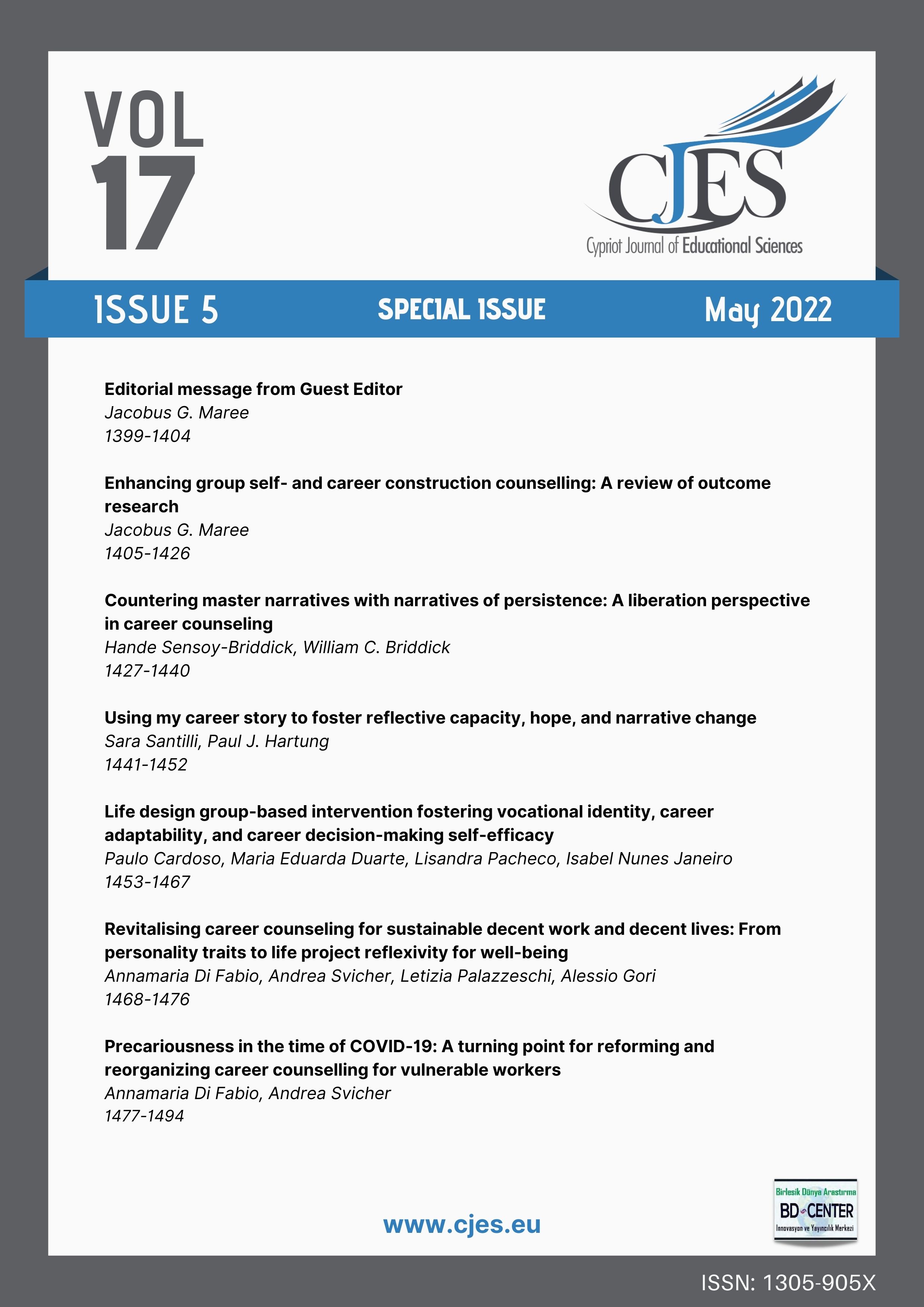Life design group-based intervention fostering vocational identity, career adaptability, and career decision-making self-efficacy
Main Article Content
Abstract
This study examines the process and outcome of a life design group intervention with grade 9 students. In a sample of 139 participants (91 girls and 48 boys), a quasi-experimental design was applied to analyse the intervention’s effectiveness at fostering vocational identity, career adaptability and career decision-making self-efficacy. Seventy and 69 participants were included in the experimental and control groups, respectively. Outcome measures were applied at the onset of the intervention, at the end of counselling and three months after the last session. A focus group involving 17 participants was conducted to determine participants’ perceptions of the intervention process and outcome. The findings support the empirical evidence on the effectiveness of life design group-based interventions to foster vocational identity, career adaptability and career decision-making self-efficacy. The focus group participants evaluated the intervention as useful by fostering reflexivity and a sense of direction. Overall, the findings suggest the relevance of life design practices in educational settings to foster reflexivity and, therefore, to facilitate students’ career construction. The research implications of the findings are also discussed.
Keywords: Life design, vocational identity, career adaptability, reflexivity, adolescents
Downloads
Article Details

This work is licensed under a Creative Commons Attribution 4.0 International License.
Cypriot Journal of Educational Sciences is an Open Access Journal. The copyright holder is the author/s. Licensee Birlesik Dunya Yenilik Arastirma ve Yayincilik Merkezi, North Nicosia, Cyprus. All articles can be downloaded free of charge. Articles published in the Journal are Open-Access articles distributed under a CC-BY license [Attribution 4.0 International (CC BY 4.0)].
Birlesik Dunya Yenilik Arastirma ve Yayincilik Merkezi (BD-Center)is a gold open-access publisher. At the point of publication, all articles from our portfolio of journals are immediately and permanently accessible online free of charge. BD-Center articles are published under the CC-BY license [Attribution 4.0 International (CC BY 4.0)], which permits unrestricted use, distribution, and reproduction in any medium, provided the original authors and the source are credited.

